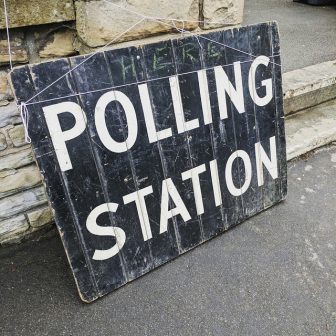 As Labour seeks a return to power 13 years on from when it last held office, speculation is growing about when the next general election could be.
As Labour seeks a return to power 13 years on from when it last held office, speculation is growing about when the next general election could be.
The existing parliament first met on 17 December 2019 and will automatically dissolve on 17 December 2024, with polling day expected to take place 25 days later.
Consequently, the next election will take place by the end of January 2025 at the absolute latest.
However, the countdown to the next general election and its potential impact on the housing market has already started.
“For those attempting to predict the trajectory of the UK housing market, attention is shifting away from the Bank of England and towards the Houses of Parliament,” said Tom Bill, head of UK residential research at Knight Frank.
As inflation comes under control and the general election campaign winds up, politics will be firmly back on the agenda.
Ahead of the Autumn Statement on 22 November, media reports suggested the government was considering a series of measures to help buyers.
They include extending the mortgage guarantee scheme, which enables lenders to offer 95% mortgages, as well as other proposals to encourage saving for a deposit.
However, there is only so much the government can do given the bigger picture of interest rates that are normalising after 14 years, according to Bill.
He explained: “It has been a white-knuckle ride for anyone buying or re-mortgaging over the last 18 months, as we have explored. Stubbornly-high inflation means the seasonal autumn bounce in the housing market has been minimal this year. UK transaction volumes are down by around a fifth as buyers come to terms with higher rates and sellers with lower asking prices.
“A more eye-catching plan being considered by the chancellor is a stamp duty [SDLT] cut, according to other media reports.
“It is measure guaranteed to move the housing market, as we saw during the pandemic and the frenetic activity levels that arose from the SDLT holiday.
“Stamp duty cuts have to happen immediately and rises (or the end of a holiday) need to happen gradually, not the other way round. Otherwise, the risk is a stop-start market or one that becomes clogged up.
“Stamp duty cuts are often the subject of unfounded speculation or wishful thinking, though. Targeted changes aimed at downsizers and alleviating pressures in the social care system could be a more prudent approach, as former government minister Mark Prisk told Knight Frank – more than three years ago.”
The problem with all speculation at the moment is that the opinion polls currently point to a change of government next year.
Bill added: “There have been arguments over the abolition of Section 21 no-fault evictions and whether this will need to wait until the courts are ready to cope with the workload. It has become a politically-charged debate, but a Labour government could abolish no-fault evictions whether the courts are ready or not.
“Campaigning hasn’t begun, but these multiplying uncertainties show the election countdown has now started for the UK housing market.”


Comments are closed.